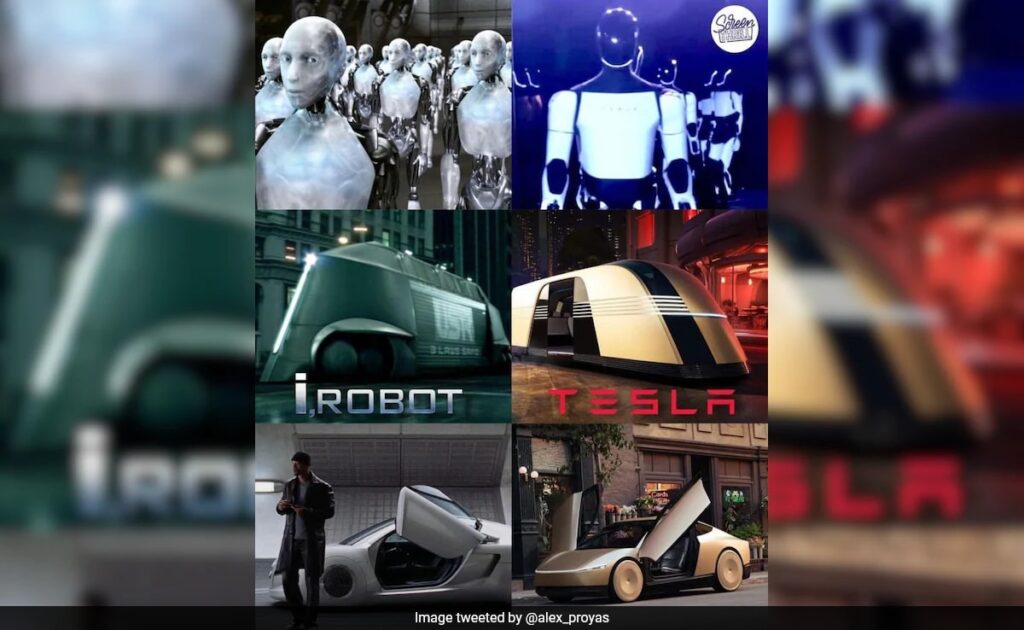Hollywood Director Alex Proyas Claims Elon Musk Copied ‘I, Robot’ Designs
Hollywood director Alex Proyas has recently made headlines by accusing billionaire entrepreneur Elon Musk of borrowing ideas from his iconic film, I, Robot. In this 2004 sci-fi classic, which starred Will Smith, Proyas explored themes of advanced robotics and autonomous vehicles, concepts that Musk’s latest Tesla innovations seem to echo closely.
The Accusation and Social Media Reactions
Taking to the platform formerly known as Twitter, Proyas expressed his frustration, stating, "Hey Elon, can I have my designs back please?" His post included comparisons of images from I, Robot and the recent showcase of Tesla’s Optimus robots and self-driving vehicles, held in Burbank, California.
In a cheeky follow-up comment on Instagram, Proyas acknowledged the efforts of his own "very talented design team" while suggesting that Musk’s team might have drawn their inspiration from films instead of original creativity. His comments sparked a lively conversation online, reflecting a mix of humor and bemusement.
Patrick Tatopoulos, the production designer for I, Robot, joined the discussion, saying, "Maybe it is just me, or should I feel honoured that Elon found some inspiration in my I, Robot designs… Either way, it’s fun to watch." His reaction hints at the shared sentiments among the creatives behind the film, balancing pride with a degree of surprise.
The Parallels Between Film and Reality
I, Robot, inspired by the writings of science fiction pioneer Isaac Asimov, is set in a futuristic world where robots are integral to everyday life. Will Smith’s character, Detective Del Spooner, navigates a society reliant on autonomous taxis and humanoid companions while grappling with a deep-seated distrust of these machines. The film intertwines thrilling detective work with ethical questions about robotics, making it a thoughtful look at technology’s role in our lives.
Musk’s announcements of the Optimus robot and the ‘robovan’ seem to tread similar ground to the film’s portrayals. The introduction of these concepts prompts discussions about the ethical implications of robotic integration into society, echoing the very questions raised in Proyas’s film.
What This Means for AI and Robotics
This incident raises broader questions about innovation and inspiration in the tech world. As companies like Tesla continue to push the boundaries of artificial intelligence and robotics, the line between homage and imitation becomes increasingly blurry. For audiences and creators alike, it’s a reminder of the potent influence that storytelling can have on real-world technologies.
As we continue to explore these themes within the frames of cinema and technology, it’s clear that the conversation surrounding AI and robotics is only just beginning. The parallels between fiction and reality not only entertain but also encourage us to think critically about the future we’re building.
Conclusion
Hollywood and Silicon Valley often collide in fascinating ways, and Alex Proyas’s claims against Elon Musk definitely put this relationship under the spotlight. As we witness the growing impact of AI and robotics in our daily lives, discussions about originality, design inspiration, and moral responsibility within these innovations will only intensify.
The AI Buzz Hub team is excited to see where these breakthroughs take us. Want to stay in the loop on all things AI? Subscribe to our newsletter or share this article with your fellow enthusiasts.




